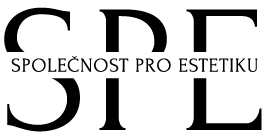Ancuta Mortu (Masarykova Univerzita v Brně)
A Script-Based Understanding of Art Appreciation
17.30, Jan Čejka Gallery, Kampus Hybernská
In cognitive psychology, scripts are defined as mental structures that play an important role in organising experiences occurring frequently by arranging them into conventionalised conceptual sequences or “knowledge-structures” (Schank, Abelson, 1977; Bartlett, 1932, 1995). I argue that the appreciation of an artwork relies on art-historical, script-based, predictions, or approximations about the place a work occupies in a tradition of art (Gombrich, 1960; Ucko,
1977; Wollheim 1990), rather than being based on mere perceptual knowledge and everyday perceptual routines. To get a grasp on script-based predictions –i.e., predictions that take as their object temporal relationships between works and their place in art history – I identify their features within a broader typology of predictions and then examine how such predictions impact art appreciation. I propose that this happens by correcting predictive failure (Van de Cruys, Wagemans 2011) with important consequences for the affective value that colours our appreciative acts.
https://www.facebook.com/events/467432498792640?ref=newsfeed
Ancuta Maria Mortu, Ph.D. (Seminář dějin umění, Filozofická fakulta, Masarykova univerzita)
V současné době je součástí týmu MASH Junior Research Group a pracuje na projektu ‘Remote Access: Understanding Art from the Distant Past.’ Ve svém výzkumu využívá hledisko kognitivních věd pro zkoumání otázek estetiky a dějin umění týkajících se oceňování umění. Doktorskou práci pod názvem “From Aesthetic Cognition to Cognitive Aesthetics. A Genealogical Study” obhájila na École des Hautes Études en Sciences Sociales v roce 2015. Publikovala například článek “Degrees of Attention in Experiencing Art” v časopise Estetika.
